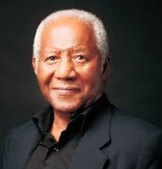Sports’ economic multipliers are besides health benefits

Dr. Lanre Towry-Coker, FRIBA, FNIA, MA Law (UL), Ph.D, a former commissioner for housing in Lagos State, with a doctorate from Lagos State University, is founder of Towry-Coker Associates since 1976, and a professional architect with a postgraduate qualification in Architecture from the University of North East London. He had his professional training at the world famous Royal Institute of British Architects (RIBA) and is an Associate of the Chartered Institute of Arbitrators in the United Kingdom (ACI.Arb.); a Fellow of the Nigerian Institute of Architects (FNIA), he was elected Fellow of The Royal Institute of British Architects, (founded 1834), in November 2016, and is one of only forty architects worldwide to be so honoured. He is also the author of the book, “Housing Policy And The Dynamics Of Housing Delivery In Nigeria: Lagos State As Case Study” published by Makeway Publishers, and available on Amazon and also at The Royal Institute of British Architects, Portland Place. London.
January 30, 2024482 views0 comments
Sports can indeed serve as an economic multiplier beyond their health benefits. Here are several ways in which sports can have a positive economic impact:
Revenue Generation: Sporting events, such as professional leagues, tournaments, and championships, generate significant revenue through ticket sales, merchandise, and broadcasting rights. This revenue contributes to local economies by supporting jobs and businesses in the sports industry.
Tourism: Major sporting events attract visitors from across the world, leading to increased tourism. Tourists spend money on accommodations, dining, transportation, and entertainment, benefiting hotels, restaurants, and local businesses.
Infrastructure investment: Hosting large sporting events often requires the development or improvement of infrastructure, such as stadiums, arenas, and transportation systems. These investments can have long-term economic benefits by enhancing the city’s appeal for residents and businesses.
Read Also:
Sponsorships and advertising: Sports provide opportunities for sponsorship deals and advertising campaigns, which inject money into the economy. Businesses pay significant sums to associate their brands with popular sports teams or athletes.
Job creation: The sports industry, including athletes, coaches, event organisers, and support staff, creates jobs directly and indirectly. This job creation can have a ripple effect on other sectors of the economy.
Urban renewal: Sports facilities and stadiums are often located in urban areas that benefit from revitalisation efforts. These developments can lead to increased property values and business growth in surrounding neighbourhoods.
Youth Development: Sports programmes and facilities encourage youth participation and development, which can have long-term economic benefits by producing skilled athletes and potential future sports industry professionals.
Media and entertainment: Sports are a significant part of the media and entertainment industry, including television contracts, streaming services, and video games. These platforms generate revenue and contribute to the broader entertainment sector.
While sports can be an economic multiplier, it’s essential to consider the potential costs and risks associated with hosting major events or investing in sports infrastructure. Proper planning and management are crucial to maximise the economic benefits while mitigating potential downsides.
- business a.m. commits to publishing a diversity of views, opinions and comments. It, therefore, welcomes your reaction to this and any of our articles via email: comment@businessamlive.com
